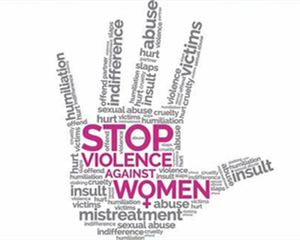To take another iconic moment of the last few years: Prince Andrew's BBC television interview of November 2019, when he tried to explain that his visit to the home of child trafficker and abuser Jeffrey Epstein in 2010, barely months after Epstein's conviction for sexual assault, arose from his tendency to be too "honourable" (staying with a convicted sex offender was the "honourable" thing to do). He was floundering in the dark. His denials that he had ever met or had sex with Virginia Giuffre, formerly Roberts, who states that she was coerced into sex with him when she was 17, were met with ridicule. It was an extraordinary display of blindness: to the young female victims, trafficked by Epstein – allegedly with the support of Ghislaine Maxwell, who is now awaiting trial – not one of whom got a single mention; to the self-defeating farce of his own case (unlike Oedipus, his blindness was atoning for nothing).
再來看看過去幾年的另一個標志性時刻:安德魯王子2019年11月接受BBC電視采訪,當他試圖解釋自己在2010年兒童販子和虐待者杰弗里·愛潑斯坦的家時,就在愛普斯坦被判性侵的幾個月后,是因為他傾向于過于“體面”(與性犯罪者呆在一起是一件“體面”的事)他在黑暗中掙扎。他否認自己曾與弗吉尼亞·吉弗(前羅伯茨)見過面或發生過性關系,后者聲稱她在17歲時被強迫與他發生性關系,這遭到了嘲笑。這是一種極其無知的表現:對被愛普斯坦販賣的年輕女性受害者——據稱他得到了吉斯林·麥克斯韋爾的支持,現在正等待審判——都沒被提及;對他自己的弄巧成拙的鬧劇(與俄狄浦斯不同,他的無知是無法彌補的)。
But he was also revealing a chilling truth, which I suspect played its part in the speed with which he was summoned by the Queen and dismissed from his royal duties without ceremony, despite the fact that he is reputed to be her favourite child. Honour, here in its royal incarnation, revealed its true colours as the right to violence with impunity. (In the UK any investigation into Epstein has been summarily dropped.) For that very reason Virginia Woolf warned women in the 30s not to be tempted by the panoply of power and the trappings of national honour – which would suck them into war. But the shiftiness is not an afterthought. It is hardwired into the whole process, the chief means whereby entitlement boasts its invincibility and hides its true nature from itself.
但他也揭示了一個令人不寒而栗的事實。我懷疑,他之所以被女王迅速召見并在沒有任何儀式的情況下就被解除了王室職責,原因就在于此,盡管他是女王最寵愛的孩子。榮譽,在這里以它的皇家化身,揭示了它的真面目——使用暴力卻不受懲罰的權利。(在英國,任何針對愛普斯坦的調查都已被立即撤銷。)正是這個原因,弗吉尼亞·伍爾夫在30年代警告女性不要被權力的盛裝和國家榮譽的裝飾所誘惑——這會將她們拖入戰爭。但這種變化并不是事后才想到的,它根植于整個過程當中,這是權利夸耀其不可戰勝的主要手段,并對自身隱藏其真實本性。

In one of his best-known formulas, Freud wrote of "His Majesty the Baby", by which he meant the will to perfection and the burden of adoration that parents invest in their child. Narcissism starts with the belief that the whole world is at your feet, there solely for you to manipulate. Beautifully self-serving, its legacy is potentially fatal – as in the myth of Narcissus, who drowned in his own reflection in a pool – since it makes it wellnigh impossible for the human subject to see or love anyone other than themselves.
弗洛伊德在他最著名的公式之一中寫道“嬰兒陛下”,指的是“追求完美的意志和父母傾注在孩子身上的愛的負擔”。自戀始于相信整個世界都在你腳下,完全由你主宰。美麗的自私自利,它的遺產可能是致命的——就像那喀索斯的神話故事中那樣,他淹死在水潭的倒影中——因為這使得人類幾乎不可能看到或愛上除自己以外的任何人。
Aggressivity is therefore its consequence, as the child struggles with the mother, or whoever takes her place, against the dawning recognition that they are as helpless as they are dependent on others to survive. "Every injury to our almighty and autocratic ego," Freud writes in his essays on war and death, "is at bottom a crime of lese-majeste". (In the unconscious, we are all royalty.)
因此,當孩子與母親或任何取代她的人進行斗爭時就會產生攻擊性,因為他們開始意識到自己是無助的,需要依賴他人才能生存。“對我們全能而專制的自我的每一次傷害,”弗洛伊德在他關于戰爭和死亡的隨筆中寫道,“歸根結底都是犯上之罪。”(在潛意識里我們都是皇族。)











